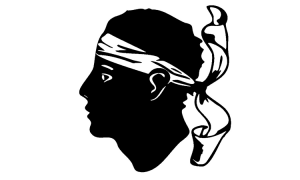Language/Corsican/Vocabulary/Feelings-and-Emotions
Hi Corsican learners! 😊
In this lesson, we'll explore the Corsican vocabulary related to feelings and emotions. We'll learn how to describe our own emotions and understand the feelings of others. By the end of this lesson, you'll be able to express a variety of emotions in Corsican. Let's get started! 😃
Once you've mastered this lesson, take a look at these related pages: Parts of the body & Education.
Basic emotions[edit | edit source]
Let's start with some basic emotions. These are the most common feelings that we experience, and they are expressed differently in every language. Here are some Corsican words that might come in handy:
To put these words in context, let's create a dialogue where two friends are discussing how they feel:- Person 1: Mi sentu ànfima. ('I feel anxious')
- Person 2: Perchè? ('Why?')
- Person 1: Ùn sè. Hè solu un sentore. ('I don't know. It's just a feeling.')
Complex emotions[edit | edit source]
Here, we'll cover some more complex emotions that are difficult to express in just one word. These include emotions like love, envy, and jealousy. Let's take a look at some Corsican words:
| Corsican | Pronunciation | English |
|---|---|---|
| Alegrìa | /a'ledʒɾi.a/ | Joy |
| Tristizza | /tɾis'tit͡tsa/ | Sadness |
| Paure | /'pawɾe/ | Fear |
| Collera | /'kɔlːeɾa/ | Anger |
- Person 1: Ùn sò chi fà. Sentu qualcosa per ellu. ('I don't know what to do. I feel something for him.')
- Person 2: Cosa senti? ('What do you feel?')
- Person 1: Amore, ma puru invida per tutti quelli chi stanu vicini à ellu. ('Love, but also envy for everyone who is close to him.')
Idioms and expressions[edit | edit source]
Finally, let's explore some Corsican idioms and expressions related to emotions:
| Corsican | Pronunciation | English |
|---|---|---|
| Amore | /a'moɾe/ | Love |
| Invida | /in'vida/ | Envy |
| Gelosia | /dʒe'lozja/ | Jealousy |
- Person 1: Hè indecisa. Ùn sà sì piglià a 4 o ciò chì hè chì. ('She is indecisive. She doesn't know if she should go with option A or option B.')
- Person 2: È à cavalità di l'umori? ('Is she emotionally unstable?')
- Person 1: No, penso ch'elle passa attravarsu un cunflittu internu. ('No, I think she's going through an internal conflict.')
Summary[edit | edit source]
In this lesson, we covered a range of Corsican vocabulary related to feelings and emotions. We explored some basic emotions like joy and sadness, more complex emotions like envy and jealousy and idiomatic expressions to describe a range of moods and situations. Remember that learning a language takes time and practice. To improve your Corsican vocabulary, you can also use the Polyglot Club website. Find native speakers and ask them any questions!
Sources[edit | edit source]
Other Lessons[edit | edit source]
| Corsican | Pronunciation | English |
|---|---|---|
| A cavalità di l'umori | /a kaʋa'lit͡sə di lu'mɔɾi/ | Emotionally unstable |
| Attravarsu un cunflittu | /at͡tɾavaʃ'u un kun'flittu/ | To go through a conflict |
| Tacca di sambale | /'takka di zam'bale/ | To be angry |
| Essa à manca di cugnizione | /'ɛsa a 'maŋka di kuɲit'sjone/ | To be unaware or not understand something |

